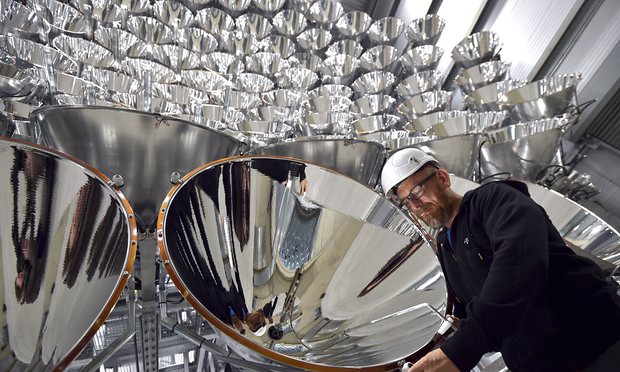MI weekly selection #225
MI weekly selection #225

Experiment hopes to shine intense light on hydrogen fuel production
Nearly 150 powerful lamps that together produce light more intense than natural sunlight are the focus of the Synlight experiment in Germany that scientists hope can help create hydrogen fuel. Researchers suspect that, with the right setup, the “artificial sun” can create a reaction that pulls hydrogen out of water vapor.
Supermassive black hole pushed from centre of its galaxy by gravitational waves
Gravitational waves likely ejected a supermassive black hole from the centre of galaxy 3C186. “We estimate that it took the equivalent energy of 100 million supernovae exploding simultaneously to jettison the black hole,” said Stefano Bianchi, a co-author of the study.
Random DNA mistakes responsible for most cancers
Random mistakes in DNA are responsible for most cancers. Researchers created a mathematical model using data from global cancer registries and DNA sequencing data to determine what percentage of cancers were random, due to heredity or due to environmental causes, and found that 66% of cancers were because of random DNA mistakes.
Genome sequencing used to determine tuberculosis strains in UK patients
Researchers in the UK have used genome sequencing to isolate various strains of tuberculosis. The technique could speed diagnosis and treatment for patients with TB.
Touch-sensitive synthetic skin developed using graphene
Researchers have developed synthetic skin with touch sensitivity that may one day be used by amputees and robots. The skin, with solar cells built in using graphene, is able to make sensitive pressure measurements.